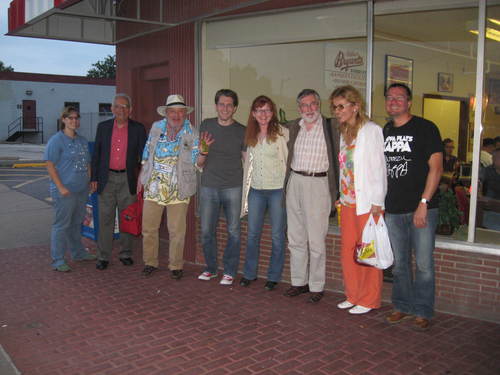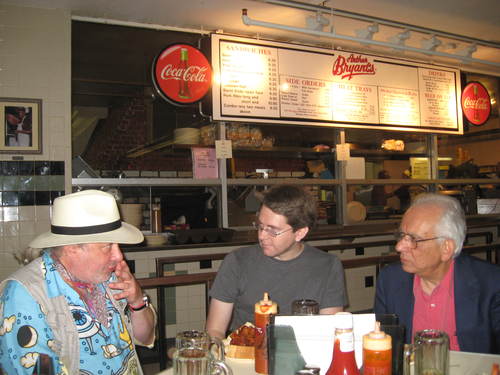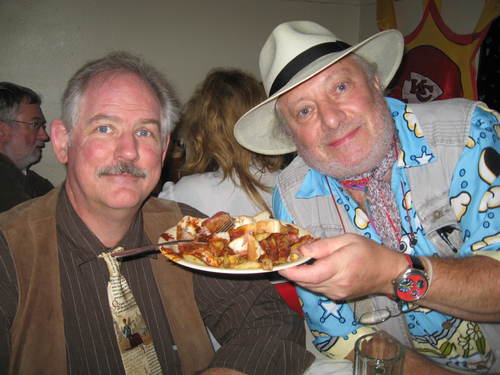The big minimalist event today was maximalist indeed – a celebrity dinner party at Arthur Bryant’s, just about the most famous barbecue place in the world. The photo below just postdated Mikel Rouse’s departure, but still we had Rachel McIntire (David’s daughter, video-documenting the conference); composers Paul Epstein, Charlemagne Palestine, and Scott Unrein; pianist Sarah Cahill; and musicologists Keith Potter, Dragana Stojanovic-Novicic, and Pwyll ap Sion:Â
For over a decade I had pictured Arthur Bryant as some really plush, elegant place, but it’s just kind of a barbecue shed in a desolate part of town:
But the sauce was pungent, the meat fell apart at the touch of a fork, and it didn’t take Charlemagne to get me to finish my dinner:
I’m getting too busy to attend all the papers, especially since I gave my own Dennis Johnson paper today. But we had a lovely panel on Julius Eastman. Ellie Hisama has been interviewing Julius’s family, and fleshed out a long overdue biographical picture. Andrew Hanson-Dvoracek surprised me with a hardcore pitch analysis of Eastman’s Gay Guerilla, finding some meticulous structures I hadn’t noticed when I coached a performance of the piece; and even suggesting, startlingly if not illogically, that he was aiming for some rapprochement between Uptown and Downtown methods. Jeremy Grimshaw, author of an upcoming book on La Monte Young, and I traded stories, and David McCarthy gave a concise analysis of Young’s “The Black Album” that I was glad to have someone else take off my hands. Among the hours and hours of Steve Reich papers, Kerry O’Brien detailed a little-known history of Reich’s performances from 1967 to ’69 to show that his brief flirtation with electronics, which he rather hushed up in his subsequent writings, paralleled the cybernetics fad that faded in the ’70s into a post-Vietnam disillusionment with technology.Â
This evening the newEar Ensemble presented a near-marathon concert. My favorite was a gorgeous little work for piano and cello by the Serbian Vladimir Tosic that seemed to melt away onstage, and also the gently rippling Sun on Snow by Barbara Benary, violinist for the original Phil Glass Ensemble and an underrated composer. The final work by Tom Johnson, Narayana’s Cows, applied a speciously simple mathematical problem to the creation of a progressively expanding melody, charming the ear while making the brain work overtime. More tomorrow, I hope; I’m exhausted.



